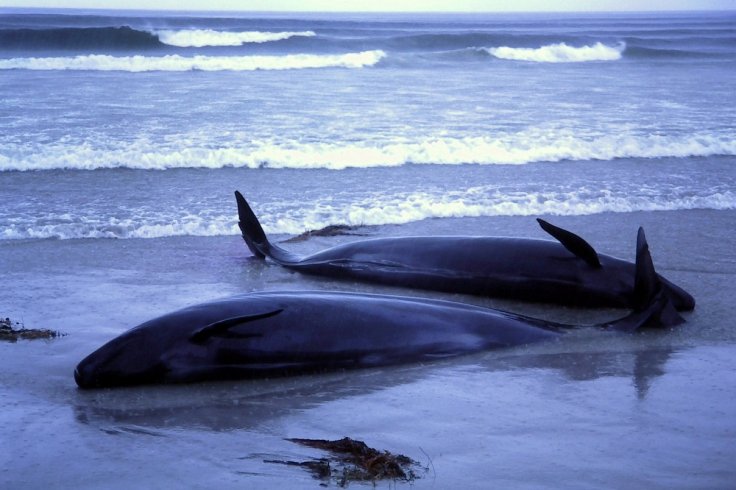Over a dozen of wales died in New Zealand after becoming stranded on the country's North Island, said the Department of Conservation on Sunday, October 18.
As per the department, on Saturday, October 17 rescuers and volunteers worked for the entire day to refloat about 25 of the marine animals—part of a pod of about 40 to 50 pilot whales who got stranded on that day on a beach located in New Zealand's the Coromandel Peninsula.
On Saturday night, five dead pilot whales were found at the beach that is thought to be the original stranding location. In a Facebook post, the department stated that the high tide at about 9 pm on Saturday had allowed that wales to be refloated. "Members of the pod stranded this morning (on Sunday) including several on rocky outcrops at the bay," the post added.
The department also noted that almost a dozen whales have died after re-stranding on the rocks on Sunday morning. "However, we are encouraged by the fact the majority of the stranded whales have rejoined the pod this morning and have been chaperoned out to deep water," the post said.
Why Do Such Incidents Happen?
In September, nearly 400 whales have died in the same way which is suspected to be Australia's largest stranding incident so far. But why every year such incidents occur? What is the reason behind the mass suicide?
There are almost 2,000 strandings each year worldwide, leading to the death of these marine species. The stranding by cetacean, also known as beaching, refers to the phenomenon of whales and dolphins stranding themselves on beaches. As per the Fish and Wildlife Foundation of Florida, stranding of a single, live animal is usually the result of sickness or injury but "bad weather, old age, navigation errors, and hunting too close to shore also contribute to beachings."
Among all whales and dolphin species, toothed whales, also known as Odontoceti--dolphins, porpoises, and all whales with teeth—are more prone to mass beaching. It is very common for these species to live in large groups while maintaining a social system.
But if one member of the group is sick or it gets in trouble, "its distress calls can cause the other members to follow it to the beach, resulting in a mass stranding," said the organization. In the case of the killer whales, they sometimes intentionally beach themselves to hunt seals on the shoreline. They then wait for the waves to help them to return to the sea.

However, as per some scientists, sonar signals and other man-made loud underwater noises may also contribute to stranding incidents. Low and mid-frequency active sonar—used by the military to detect submarines and other acoustic exercises—do not affect all the marine species but can be deadly for some of them.
Low frequency can cause hemorrhaging in exposed marine animals, while others get panicked and beach themselves to escape the sonar. "Mid-frequency sonar most affects Cuvier's beaked whales, causing decompression sickness, leading to tissue damage from gas bubble lesions," said noted the animal welfare organization.








